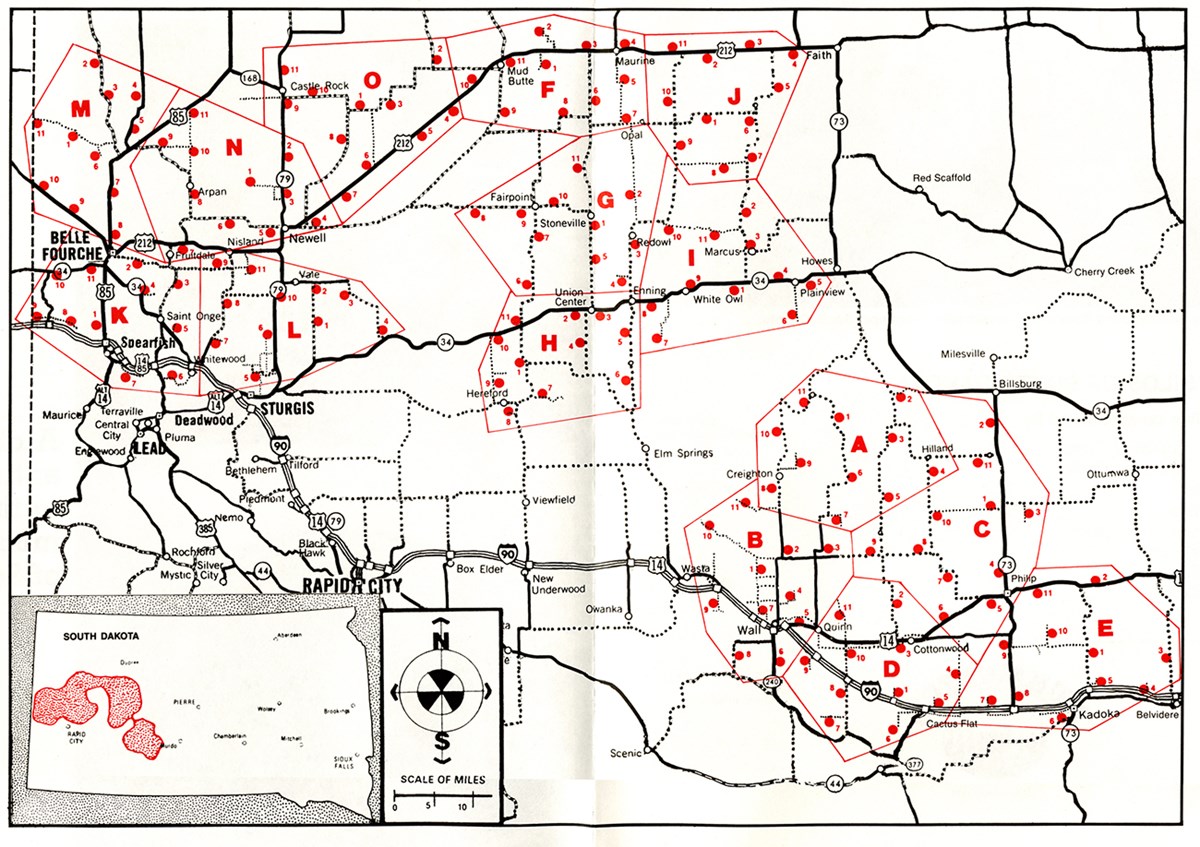I watched video about a prepping community that refurbishes former US Army ammo bunkers in South Dakota:
The first thing that crossed my mind was that this looked like exactly the kind of place the army would select for a Minuteman ICBM silo site, and in a few minutes of searching, here’s what I found:
Yes, there indeed is a huge ICBM field right across from that abandoned ammo depot. So, yeah, good job placing your “survival” bunkers right on the “X”, in the middle of a first-strike zone of death that’s going to be turned into a glass parking lot in case of a nuclear war.
Edit: this missile field seems to have been retired, but to quote Wikipedia, “Some 450 of the newer Minuteman III missiles are still on active duty at Malmstrom AFB, Montana, Minot AFB, North Dakota, and F. E. Warren AFB, Wyoming.” This is all basically “next door”, so my observation stands.
This made me continue this line of thinking: how to identify bad ideas when you’re trying to prepare for a disaster, and what makes sense.
There are several fundamental principles I try to adhere to:
- Prepare the way you normally live. This means you don’t buy “survival foods”, you buy the kind of foods you would normally eat, just keep an increased suply at home instead of doing the “just-in-time” thing. This also means you don’t have a separate “survival location” where you would bug out to in case of a disaster, because the likelihood of you being able to leave your primary residence in case of an acute emergency is exceedingly low, and your probability of success drops exponentially with the remoteness of your survival site. This means that your primary location must be equipped to serve as an emergency shelter, and if it’s not, you should move to a place that’s inherently safer. Essentially, don’t buy a shelter in the middle of nowhere if you don’t intend to actually live there, because chances are you won’t be able to get there in time; if there’s a nuclear war looming, do you really want to be on a long road trip, exposed? If there’s an emergency, understand that the authorities might restrict your movement, that there might be panic and chaos, and being out there in such a scenario actually increases your probability of robbery, injury or death.
- Use your imagination a bit and imagine several modes of disaster. Examples are nuclear war, civil/conventional war, riots, earthquake, volcano, flood, tsunami, plague and extreme weather (tornadoes, hurricanes etc.). Use common sense to model probabilities: are you in a flood zone, does your location have extreme weather, is there a history of seismicity or volcanism, is your country trying to piss off a nuclear superpower, what’s the population density and what happens in case of riots or a plague and so on. If your primary or hypothetical secondary location puts you right on the “X”, you have a problem. You need to approach this from a risk-reduction realistic perspective. Basically, don’t build a nuclear shelter in a first-strike zone of death, near the ICBM field.
- What’s your realistic endgame? You’re in the shelter, there’s a disaster you’re riding out, but what do you actually plan to achieve? Let’s say it’s a big disaster. Do you keep relatives and neighbours out in some “every man for himself” pattern, or do you try to build a wider community “for later”, because your probability of survival as an individual with lots of supplies, but alienating everybody else, works for as long as you don’t vitally need something you don’t have. However, if you’re spreading out your supplies across a wider group, they are not going to last long. It would be a very good idea to be surrounded by people who are all on the same page, and they all try to maintain some level of disaster preparedness, and who can then pool resources.
- If whatever you’re doing fails, what then?
- Never rely on mercenaries (or hired staff of any kind) in emergencies. They will either abandon you at the first sign of real trouble, or they will actually rob and murder you. This is a lesson people historically learned the hard way. Always ask the question “why would that person not just outright rob/kill/rape/murder me”, and if the answer is “because of the law”, you’re fucked. Also, never trust atheists with anything; if a person is not profoundly religious, they are inherently dangerous in a situation where there’s no state to enforce laws.
- A source is always preferable to a limited supply. This means having a source of water you can filter and use instead of having a water tank; having a power source (a hydroelectric, solar or wind generator) rather than relying on batteries or a limited tank of diesel for the generator; being able to grow food rather than relying on limited supplies. Living in some remote area with limited supplies inevitably creates a scenario where the supplies run out, and then what? Always plan ahead and avoid obvious dead ends.

